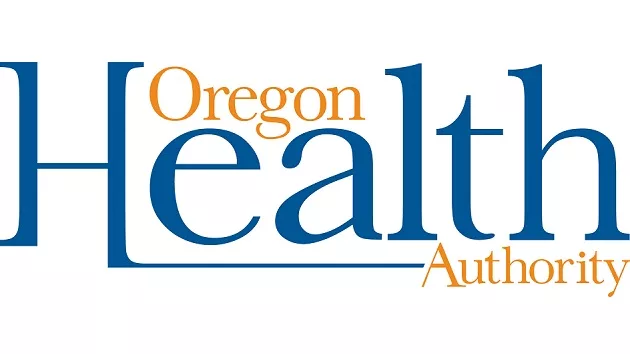Four out of five Oregonians have kept their Medicaid health insurance coverage since COVID-related continuous enrollment ended in 2023, according to updated data from Oregon Health Authority.
While the overall number of people maintaining coverage has remained high, the rate of benefits being reduced or ended has recently grown as more complex cases are considered during the final phase of Oregon’s Medicaid renewal process.
Jointly funded by states and the federal government, Medicaid provides no-cost health coverage to low-income adults, children, pregnant women, elderly adults, people with disabilities and others. The Oregon Health Plan (OHP) is the state’s Medicaid program, which is also available to Oregonians regardless of their immigration status. About 1.4 million people — including a third of Oregon’s adults and half its children — are covered by OHP.
States were required to keep nearly all Medicaid members enrolled between 2020 and 2023 due to the COVID-19 pandemic. Starting in March 2023, the federal government ordered states to resume normal processes to verify enrolled members meet Medicaid eligibility criteria.
Between March 2023 and Dec. 13, 2024, a total of:
- 1,442,038 people — 98.8% of all OHP and Medicaid members — have completed the renewal process.
- 1,161,226 people (80.5%) have kept their benefits.
- 245,259 people (17.0%) were found ineligible and ended benefits.
- 35,553 people (2.5%) had benefits reduced. Most of these members lost full OHP but were able to continue Medicare Savings Programs, which help pay Medicare costs.
- 15,784 people are in the middle of the renewal process.
- 1,485 people have not started the renewal process and are expected to complete it by the end of 2025.
Since June, when Oregon began the final phase of its Medicaid renewal process:
- 126,212 people have completed the renewal process.
- 79,014 — 62.6% of OHP and Medicaid members who have undergone the renewal process since June — have kept their benefits.
- 22,534 (17.9%) were found ineligible and ended benefits.
- 24,664 (19.5%) have had benefits reduced.
The rate of people having benefits reduced or ended has grown since June 2024. This is largely because the final phase of renewals has involved more people who have Medicare, including both older adults and people who have disabilities. Given current eligibility criteria and policy constraints, OHA and Oregon Department of Human Services staff have been working hard to improve outcomes for members during the state’s final phase of Medicaid renewals, including:
- A special outreach effort where state customer service staff call members to help them understand it’s time to start the renewal process and schedule eligibility interviews. Members who have a case manager also received calls to encourage them to participate in the Medicaid renewal process.
- Renewals for this population was spread over four months to give people more time and to ensure staff had capacity to provide additional support.
- Eligibility notices received a major update in May 2024 to provide more information and make them easier to understand.
Helping people stay covered
Concerted efforts have helped many Oregonians keep insurance coverage, resulting in a Georgetown University study finding that Oregon had the nation’s highest rate for Medicaid renewals as of July. The many reasons for the state’s high Medicaid renewal rate include:
- OHP Bridge, a new category of OHP with higher income limits, launched July 1. As of the beginning of December, 31,436 people were enrolled in OHP Bridge.
- During the unwinding, Oregonians have up to 90 days to respond and 60 days’ advance notice of any closure. People who do not respond can also reopen their case up to 90 days after closing. Oregon gave members longer to respond than any other state.
- A robust, statewide network of community partners, combined with tools like earned media and paid advertising, helped spread awareness of the renewal process.
- After having their medical benefits renewed, most adults have two years of continuous eligibility for Medicaid benefits. While this does not directly affect Oregon’s renewal rate, it prevents the churn of on-and-off benefits between renewals and allows staff to provide more support to people during the unwinding process. Oregon is the only state to give most adults two years of continuous eligibility for Medicaid benefits, and offers young children benefits until their sixth birthday.
Need help renewing your benefits?
- Learn more about how to renew your OHP coverage. You can log into your ONE Online account and complete your renewal at benefits.oregon.gov.
- Call the ONE Customer Service Center at 800-699-9075. All relay calls are accepted, and help is available in multiple languages. Wait times are lowest between 7 and 8 a.m. Pacific Time.
- Visit or call a local Oregon Department of Human Services office. People can find their local office at https://www.oregon.gov/odhs/Pages/office-finder.aspx.
- Visit a community partner for free, in-person help. To find one near you visit OregonHealthCare.gov/GetHelp (English) or orhim.info/ayuda (Spanish).
- Download the Oregon ONE Mobile app via the app store to keep track of your renewal, find a local office, or upload a document.
What to do if your OHP is ending:
First, review your notice to make sure the information used to make the decision was correct, and report any changes. You can also reapply for OHP at any time. Go to benefits.oregon.gov to apply or report changes online, call 800-699-9075 or contact a local office for help.
- If you have questions about financial resource limits, medical eligibility workers will explain the rules and your options. However, they cannot provide legal advice or tell you what to do with your finances.
- If you lost OHP but are keeping a Medicare Savings Program that helps pay Medicare costs, make sure you understand your new benefits because they can affect your other Medicare plan decisions.
- If you disagree with a decision about your benefits, you can ask for a hearing . An OHP ombuds person can help with the hearing if desired.
Second, take action to sign up for other coverage as soon as you receive a notice your benefits are closing because there are time limits to enroll in other coverage. Anyone losing OHP can get free help from community partners, insurance agents or for Medicare recipients, Senior Health Insurance Benefits Assistance (SHIBA) counselors across the state. Health insurance coverage options are described at OregonHealthCare.Gov/GetHelp. Some scenarios include:
- If you are offered coverage through an employer, loss of OHP gives you a special enrollment period to sign up. Contact your employer’s human resources department for more information and assistance.
- If you qualify for Medicare (or will soon qualify), you should consider Medigap/Medicare Advantage/Part D plan options. Members should contact a SHIBA counselor or Medicare insurance agent for help deciding between Medicare options.
- If you do not qualify for employer coverage or Medicare, you likely qualify for a private health insurance plan through the Oregon Health Insurance Marketplace, which offers financial assistance to 80% of enrollees. This includes Social Security Disability (SSDI) recipients who are not receiving Medicare or other full coverage and earn too much to qualify for OHP and OHP Bridge. Members can visit OregonHealthCare.gov/WindowShop to find out how much coverage may cost.






